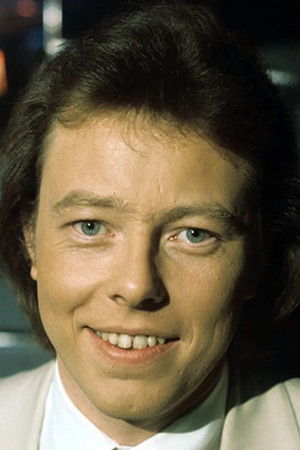Peter Skellern (1947-2017)
Birthplace:
Bury, Lancashire, England, UK
Born:
March 14, 1947
Died:
February 17, 2017
Peter Skellern (14 March 1947 – 17 February 2017) was an English singer-songwriter and pianist who rose to fame in the 1970s. He had two top twenty hits on the UK Singles Chart - "You're a Lady" (1972), which typifies his signature use of brass bands and choral arrangements for a nostalgic and romantic feel, and "Hold On to Love" (1975). In the 1980s, Skellern formed the band Oasis with Julian Lloyd Webber and Mary Hopkin and established a musical comedy partnership with Richard Stilgoe in cabaret. Over his career, Skellern wrote and performed music for film, television and stage, notably writing and starring in Happy Endings, a 1981 BBC anthology series of comic musical plays. Skellern's songs have been recorded by Andy Williams, Davy Jones, Brigitte Bardot, Ringo Starr and Jack Jones, amongst others. After developing an inoperable brain tumour, Skellern was ordained as a deacon and priest of the Church of England in October 2016. He died four months later. Peter Skellern was born in Bury, Lancashire, to Margaret (née Spencer) and John Skellern. He attended Derby High School and studied piano at the Guildhall School of Music and Drama. After graduating with honours in 1968, Skellern struggled to make headway in a career as a concert pianist and instead focused on pursuing popular music. Answering a Melody Maker advert, Skellern joined the band The March Hare as keyboardist. This gave the classically-trained musician experience in rock and pop. The March Hare became Harlan County in 1970, but failed to achieve any success and disbanded. Skellern continued to pursue a career in pop, represented by the band's manager Johnny Stirling. This led to a record deal with Decca for recording and Warner Music for publishing, signed on 5 May 1972. Skellern's first song to become a hit was "You're a Lady", released on 11 August 1972. The record featured Skellern accompanied by members of the Congregation, who had previously recorded the top ten hit "Softly Whispering I Love You", and the Hanwell Band. "You're a Lady" reached number 3 on the UK Singles Chart and number 50 in the United States Billboard Hot 100. The accompanying album You're a Lady and subsequent singles failed to chart. Success for Skellern followed three years later with "Hold On to Love" which reached number 14 on the UK chart. He also sang the theme song to the London Weekend Television series Billy Liar (1973). For three years in the 1970s he worked on BBC Radio 4's Stop the Week. A non-charting song, "Too Much I'm in Love", received radio play. In 1978, Skellern had a minor hit with the 1930s Ray Noble song "Love Is the Sweetest Thing" (which featured backing by the Grimethorpe Colliery Band), winning the Music Trades Association award for best middle of the road song. This followed his departure from Island Records after his previous album, Hard Times, had failed to chart despite a guest appearance by George Harrison. In 1981 he wrote, composed and performed in a series of musical playlets for the BBC called Happy Endings. Two years later he hosted the Private Lives television chat show. He wrote the lyrics for the song "One More Kiss, Dear" from the film Blade Runner (1982). ... Source: Article "Peter Skellern" from Wikipedia in English, licensed under CC-BY-SA 3.0.





